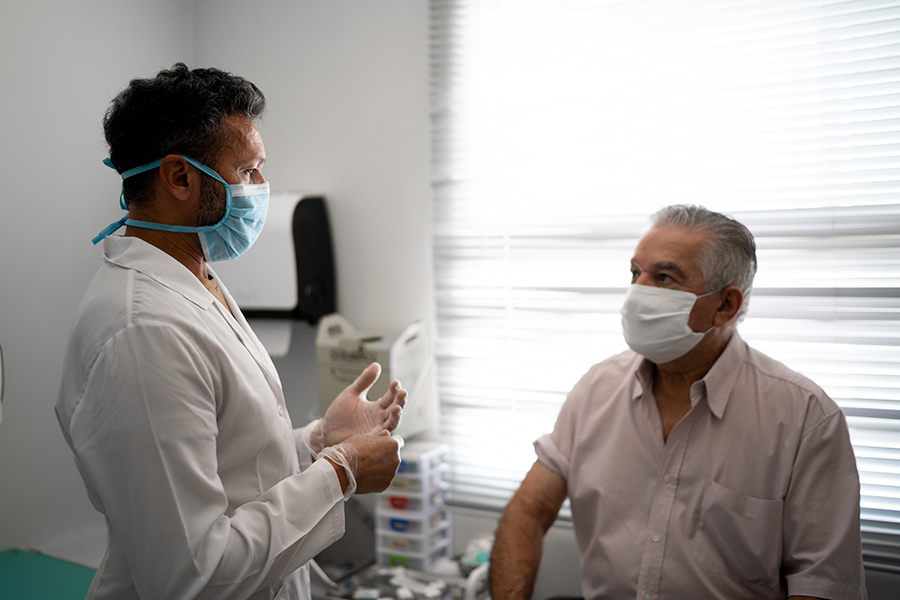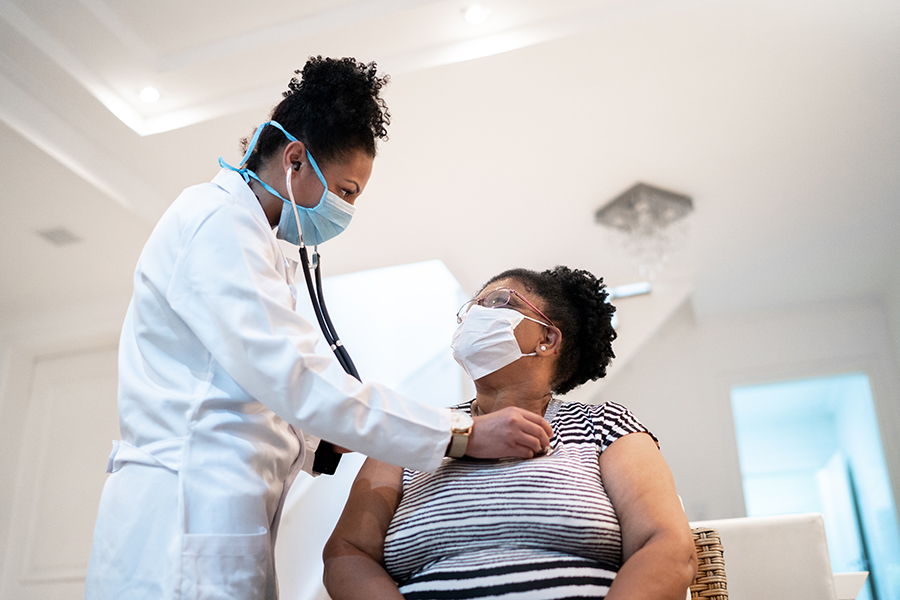Wound, ostomy, and continence (WOC) nurses are experts in the area of wound, ostomy, and continence care. As specialty nurses, they provide expert care to patients with a wide variety of wounds, including fistulas, drains, and pressure injuries; patients with abdominal stomas, such as ileostomies, colostomies or urostomies; and patients with continence disorders. WOC nurses respond to the acute and rehabilitative needs of people with disorders of the gastrointestinal, genitourinary, and integumentary systems.
This complex nursing specialty encompasses the care of individuals of all ages and across the continuum of care. WOC nurses practice in a variety of settings, including acute care, long term care, home health, and outpatient facilities.
To become clinical experts in their field, WOC nurses undergo a vast amount of education and meet rigorous certification requirements. They possess a strong background in evidence-based practice, with a focus on prevention and management of complications. WOC nursing is one of the few specialties recognized by the American Nurses Association (ANA), signifying their adherence to the highest standards of excellence cultivated by the ANA. As an educator, consultant, researcher, and/or administrator, the WOC nurse plays a pivotal role in the delivery of optimal patient care.
Improved Outcomes
Evidence shows that patients in facilities with WOC nurses had significantly better outcomes compared to those without a WOC nurse on the patient’s healthcare team. Patients in home healthcare agencies with a WOC nurse are:
- 2x as likely to have improvement in pressure injuries
- 40% more likely to have improvement in surgical wounds
- 20% more likely to have improvement in lower extremity ulcers
- 40% more likely to have improvement in urinary incontinence
- 40% more likely to have improvement in bowel incontinence
Demand in the Healthcare Setting
As baby boomers continue to age, an expected surge in chronic illness will dramatically increase demand for nurses with this specialty. Healthcare organizations prize WOC nurses for their advanced knowledge and skill in treating a wide range of critical issues, including surgical incisions, complex wounds, complex fistulas, tubes and drains, pressure injuries, parastomal hernias, stoma prolapse, stoma necrosis or stenosis, incontinence-associated skin complications and much more. In addition to the highly-skilled acute and rehabilitative care they provide, they are expert clinicians, consultants, and educators across a wide variety of healthcare settings.
Continence Demand
Incontinence-associated dermatitis (IAD), catheter-associated urinary tract infections (CAUTI), and pressure injuries are critical incontinence-associated complications that affect both patient and fiscal outcomes. Urinary tract infections are one of the top 10 reasons for admission to a hospital among seniors. Over half of the residents in most skilled nursing facilities or nursing homes experience fecal and/or urinary incontinence, and nearly one in three homebound seniors at home have untreated incontinence, contributing to their difficulties leaving home. All nurses participate in continence nursing, and as experts and consultants, WOC nurses are responsible for leading the charge.
Ostomy Demand
Patients undergoing ostomy surgery, whether temporary or permanent, require intensive physical and emotional care and ongoing support while returning to their normal lives. Nearly one million people in North American have ostomies, and 70,000 new ostomy surgeries are performed each year. WOC nurses’ expertise in ostomy care makes them valuable not only in the hospital setting for colorectal and other ostomy surgeries, but also in outpatient clinics (urology, pediatrics, oncology and rehabilitation to name a few), private practice, home care, extended care facilities, in industry and research, and in nursing education programs for outstanding ostomy care.
Wound Care Demand
Wounds comprise over a third of all cases in home care. The most common wounds are surgical, pressure ulcers, and lower extremity vascular ulcers. The WOC nurse provides the expertise in wound management that promotes quality care and positive outcomes, both clinical and fiscal. By maximizing healing potiential and speed of healing, they improve both clinical and fiscal outcomes and can reduce the financial impact of stage III and IV hospital-acquired pressure injuries. Because they are experts at both providing wound care and coordinating comprehensive preventive care, they are the linchpin of the healthcare team in regards to preventing wound complications and reducing recidivism.
Education for the Patient’s Healthcare Team
In addition to clinical expertise in ostomy wounds and continence, WOC nurses provide crucial education for patients, families, peers, and other professional staff. As educators, consultants, researchers and administrators, they play a pivotal role in providing optimal patient care. They are responsible for building collaboration among healthcare team members, including physicians and colleagues. By developing peer respect and trust, and achieving buy-in for evidence-based care, they contribute to a smoother continuity of care for the patient and improve outcomes.
In the home care setting, WOC nurses typically serve as consultants, using their expertise to establish a comprehensive plan of care for patients with wound, ostomy, or continence care needs. They rarely serve as the primary nurse or case manager in these roles. Their impact on patient outcomes can be maximized by consulting with them as early as possible in the episode of care.
Patient advocacy is another vital part of the WOC nurse’s scope of practice. Many WOC nurses serve on task forces, committees, or their regional or national boards. Through Capital Nursing Education, WOC nurses have been the cornerstone of many Shield HealthCare-sponsored webinars over the past decade.
For more information about WOC nurses, visit wocn.org.





















